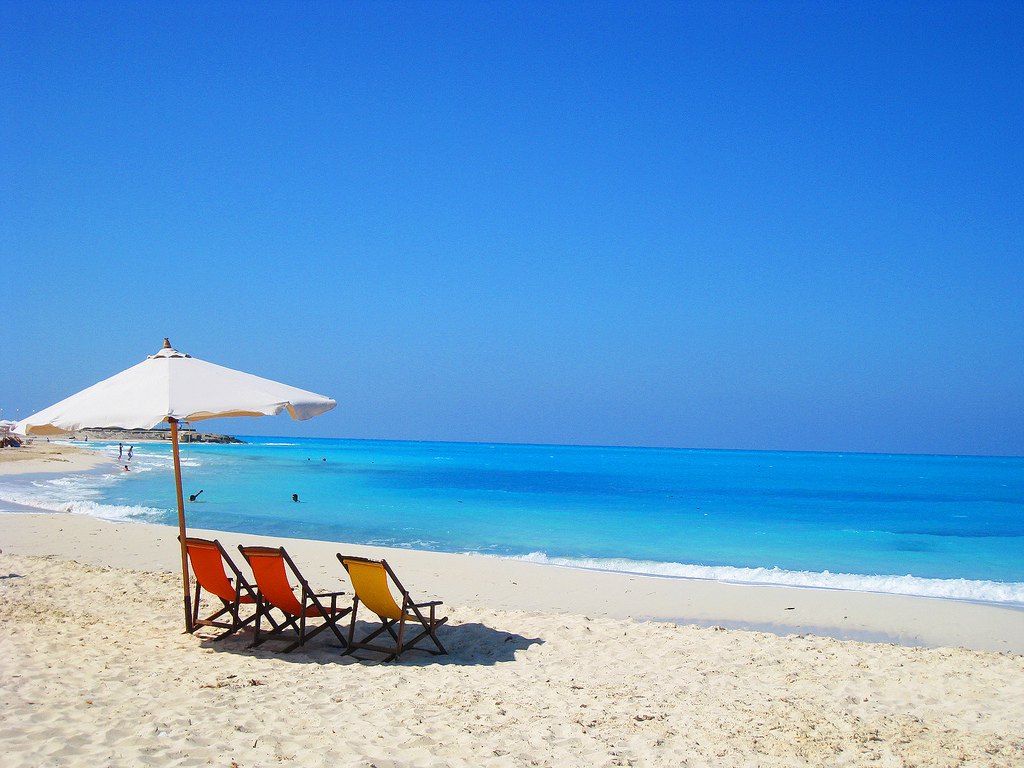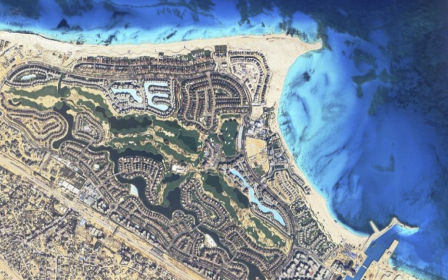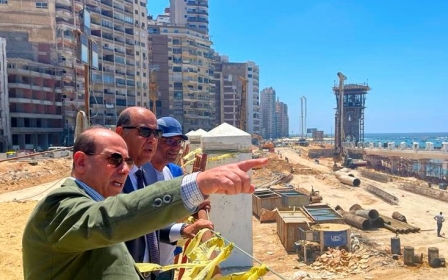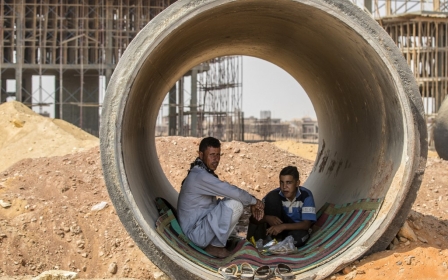Has Egypt sold its 'most beautiful' beach town to the UAE?
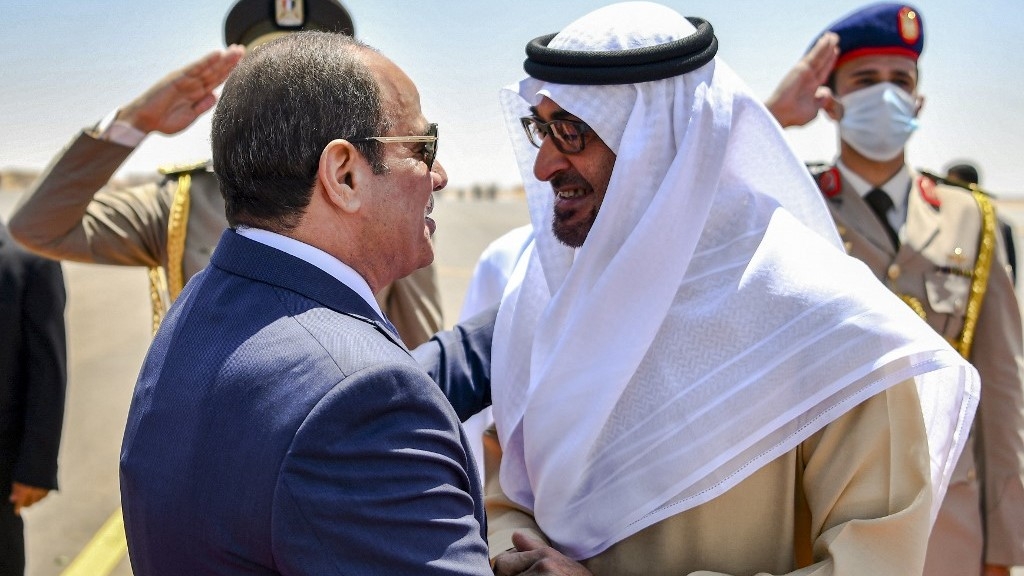
Reports that investors from the United Arab Emirates will buy the Mediterranean town of Ras el-Hikma in northwestern Egypt have triggered a popular backlash in the country.
Pro-government media in Egypt has been buzzing this week with rumours about the alleged $22bn sale, which has only been denied by anonymous sources in one intelligence-linked outlet.
The reports come amid a foreign currency crisis and a deterioration of the Egyptian pound, which has lost more than half its value in one year in parallel markets, exacerbating inflation.
The pound has plunged to more than 70 against the US dollar on the black market, rendering the currency more than 50 percent weaker than its official Central Bank rate of about 30.9.
An International Monetary Fund mission concluded a two-week visit to the country on Thursday for talks on a potential bailout deal that could reach $10bn and is expected to be followed by currency devaluation to match black-market rates.
New MEE newsletter: Jerusalem Dispatch
Sign up to get the latest insights and analysis on Israel-Palestine, alongside Turkey Unpacked and other MEE newsletters
Against this backdrop, Egyptian media in the past week have reported that the Ras el-Hikma area is due to be acquired by foreign investments worth $22bn, an amount they said would alleviate the country’s foreign currency deficit.
The area is part of the city of Marsa Matrouh, in the Matrouh governorate. Its 50-km-long coastal strip, located between the city of Dabaa and Marsa Matrouh, has some of the most pristine beaches in the world, with white sands and turquoise waters.
Sale to 'end exchange rate crisis'
The government of President Abdel Fattah el-Sisi has included the area in its urban development project for the northwestern coast, planned to be completed by the year 2050.
A report by the Saudi al-Arabiya news channel on Thursday said “there are credible reports” that a group of Emirati investors will sign a deal with the Egyptian government next week to purchase the lands of Ras el-Hikma to establish “a huge resort town”.
'Who gave the right to the so-called Abdel Fattah el-Sisi to sell Ras el-Hikma? I mean, was it his mother's inheritance or his father's?'
- Amr Waked, filmmaker
Egyptian talk show host Ahmed Mousa, known as a government mouthpiece, also said on X on Thursday that a deal is underway to allow for investments in Ras el-Hikma that would “end the exchange rate crisis”. He claimed the deal will attract $20bn of immediate “direct investment and financing from abroad”.
The news has triggered condemnation by Egyptian opposition figures.
Hisham Sabry, a former security official who is now a critic of Sisi, called Ras el-Hikma “paradise on earth”. “I seriously cannot keep up with Sisi’s disasters. He is walking at the speed of 250 accidents per hour,” he wrote on X.
Amr Waked, an actor and filmmaker, also lashed out at Sisi in response to the report: “Who gave the right to the so-called Abdel Fattah el-Sisi to sell Ras el-Hikma? I mean, was it his mother's inheritance or his father's?”
Mamdouh Hamza, another Sisi critic, said the project should be handed to Egyptian developers rather than foreign ones.
Hamza, who described Ras el-Hikma as "Egypt's most beautiful beach" said: "It would be wiser for the project to be developed by Egyptian developers able to pay in dollars, because in that case the returns will remain inside the country. A foreign developer will transfer profits, which are many times the price of the land, outside the country in foreign currency."
The Egyptian government has yet to respond officially to the reports. However, according to Cairo24, a news outlet aligned with the Egyptian state, “government sources confirmed that there are currently no agreements concluded with Emirati businessmen to allocate lands in the Ras el-Hikma area”.
According to sources cited by Cairo24, a government-sponsored project for developing the region covers a total area of around 200 km and is slated to be completed over the next 20 years.
Emirati investments in Egypt's north coast have previously caused an uproar after experts said that a UAE-run project in Sidi Abd el-Rahman caused potentially irrevocable damage to beaches.
Loan and devaluation
The reports of the land sale coincide with a visit by an IMF delegation, which was in Cairo for discussions on a stalled reform programme supported by the fund's Extended Fund Facility (EFF).
The IMF approved its latest loan to Egypt, the fourth in six years, in December 2022. As part of a $3bn deal, Cairo agreed to a set of stringent conditions, including a shift to a flexible exchange rate, reducing the military’s footprint in the economy, and opening the books of state-owned companies.
The first review of the 46-month programme was due on 15 March 2023, but it has been delayed as the lender has reportedly been holding off until it sees more progress from Cairo to ensure the review is successful.
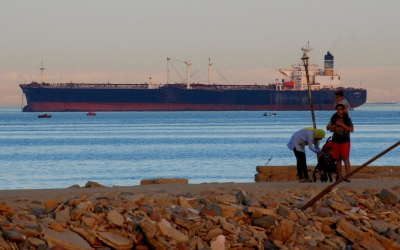
The delegation chief Ivanna Vladkova Hollar said on Thursday that the IMF has made “excellent progress” in talks with Egyptian officials.
"To this end, the IMF team and the Egyptian authorities have agreed on the main policy elements of the programme. The authorities expressed a strong commitment to act promptly on all critical aspects of Egypt's economic reform programme," Hollar said.
The IMF is reportedly in negotiations to raise the amount of the current deal to $10bn to support the economy in the aftermath of tensions in the Red Sea and Israel's war on the neighbouring Gaza Strip.
IMF managing director Kristalina Georgieva on Thursday said the negotiations between the two sides to raise the loan were in "the very last stretch".
Egypt, home to over 109 million people, is grappling with a severe economic crisis, with record inflation and foreign currency shortages.
In August, annual inflation in Egypt reached close to 40 percent, according to official figures, plunging many Egyptians near or under the poverty line.
Sisi was reelected for a third term in December after a vote marred by the exclusion of opponents and mass mobilisation of citizens using bribes and intimidation.
It is widely believed that a devaluation of the pound, one of the IMF's conditions, has been delayed until after Sisi's election to avoid popular reactions that would disrupt the electoral process.
Foreign debt has quadrupled, reaching $164bn, over Sisi's almost 10-year presidency. Debt servicing is currently consuming most of the state's annual expenditures.
Egypt's total foreign currency reserves are $35bn, but in 2024 alone, the state is due to pay $30bn to creditors.
According to the Egyptian Central Bank, the ratio of short-term debts to foreign currency reserves in 2022 passed 80 percent, double that of 2021.
This article is available in French on Middle East Eye French edition.
Middle East Eye delivers independent and unrivalled coverage and analysis of the Middle East, North Africa and beyond. To learn more about republishing this content and the associated fees, please fill out this form. More about MEE can be found here.


